Over the past five years Didier Reynders has been one of the leading figures behind the European Commission’s attacks on Hungary. Now, the former EU Justice Commissioner, who stepped down on December 1, has been under investigation for months now, on suspicion of money laundering. Since his appointment as Commissioner in 2019, Reynders has routinely criticized Hungary, baselessly citing rule-of-law issues. As recently as April, he declared in Brussels that the EU’s so-called Article 7 proceedings against Hungary must remain open until all related concerns are addressed. He also reminded the public that Ursula von der Leyen, President of the European Commission, had made it clear during the January plenary session that “access to European funds must go hand in hand with respect for the values that bind the EU together."
How the Former Belgian EU Commissioner Allegedly Laundered One Million Euros
Using methods typically associated with criminal circles, Didier Reynders, who stepped down as EU Justice Commissioner on December 1, is suspected of laundering vast sums of money of dubious origin. Reynders, a key figure in Brussels’ baseless attacks on Hungary, is under investigation for allegedly using lottery winnings to legitimize funds likely tied to corruption. According to Belgian public media, Reynders must explain approximately one million euros in suspicious transactions.
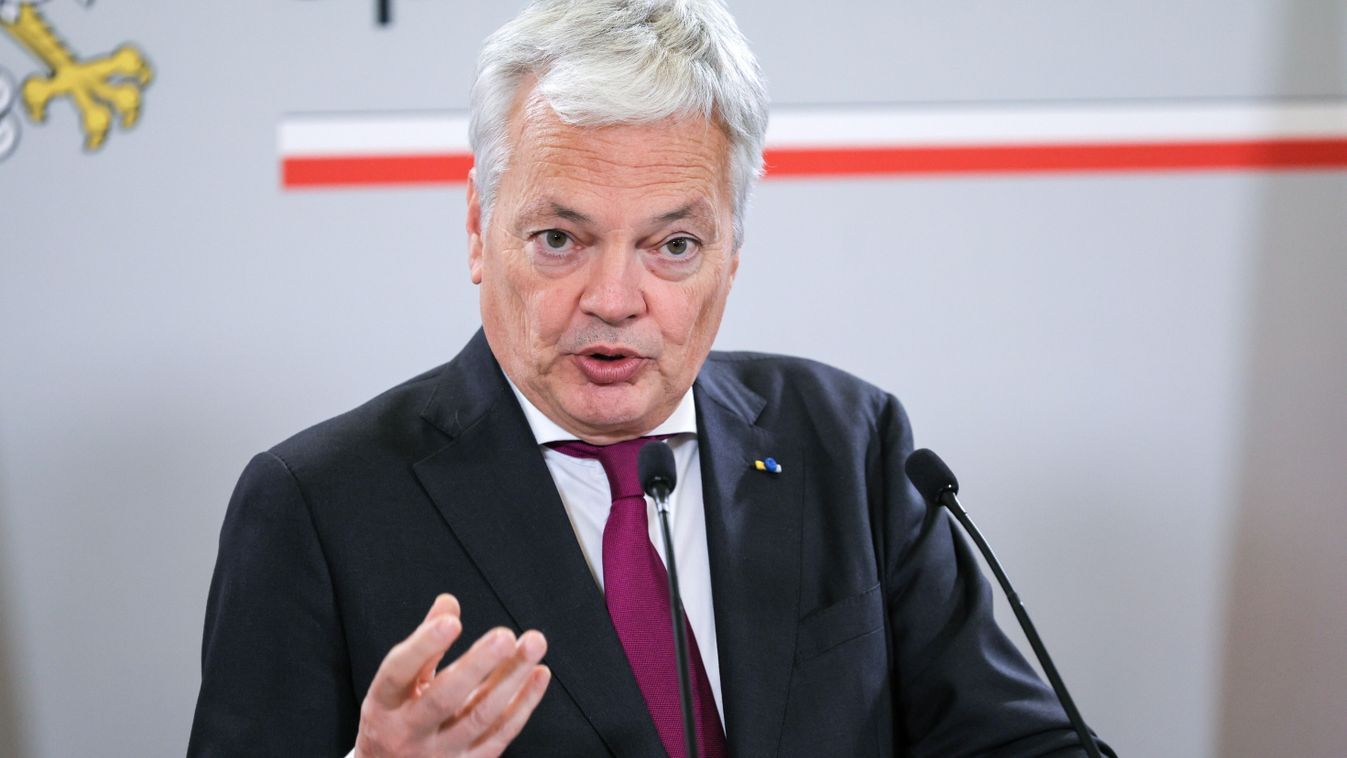
This means that Mr. Reynders is one of the Brussels officials responsible for Hungary not receiving the EU funds it has been entitled to for years.
It’s particularly hypocritical for the Belgian politician to lecture Hungary on the rule of law, given that his career - as Belgium’s former foreign and finance minister, as well as the EU Justice Commissione - has been tainted by a series of corruption allegations. Didier Reynders has been involved in several questionable dealings. Yet, he has managed to evade any legal consequences. He has faced investigations over the years for his involvement in the Congolese bribery scandal, helping Kazakh criminals escape justice, and the illicit use of assets tied to the late Libyan dictator, Muammar Gaddafi.
Laundering money through lottery winnings
However, the former EU commissioner may soon face legal consequences, as the Belgian prosecutor's office has been investigating Didier Reynders for money laundering since last year. The federal police waited until his official term as commissioner expired on December 1, 2024, and then - on December 3 - - they carried out searches at several of his properties and questioned him. Authorities discovered around 7,000 euros in cash in his homes. Reynders is suspected of laundering large sums of money through the National Lottery, which he supervised between 2007 and 2011, during the period before the alleged crimes took place. The money laundering is said to have continued for about a decade. In 2022, the National Lottery raised the suspicion of money laundering with the authorities. According to Belgian media, Reynders may have to account for approximately one million euros in suspicious transactions.
További IN ENGLISH híreink
A source familiar with the case revealed that the former justice commissioner purchased electronic vouchers, ranging from one to one hundred euros, which he then transferred to his account at the National Lottery. From there, he used the funds, as well as cash, to participate in lottery games. The winnings, now "cleaned," were then transferred to his personal bank account. Some sources claim Reynders also bought scratch cards, which are significantly more lucrative than regular lottery tickets. While the return rate for scratch cards ranges from 69% to 78%, for traditional lottery tickets, it is only 45%. The National Lottery and the independent Belgian Financial Intelligence Processing Unit (CTIF-CFI) notified the Belgian prosecutor’s office of the case. According to the CTIF-CFI, substantial amounts of money may have been moving for a long time. The suspicion is that Reynders began laundering money while still active in Belgian politics, and although he no longer oversaw the National Lottery at that time, he continued the illegal activity while serving as EU commissioner. If found guilty of money laundering, he could face up to five years in prison.
Strange regulatory change
An interesting detail about the case is that, following a regulatory amendment adopted in late May 2024, national lottery games were exempted from the EU's stricter anti-money laundering rules, on the grounds that these games are considered low-risk. According to the change, member state governments were given the option to request an exemption for their lottery games, subject to approval by the European Commission. At the time of this amendment, Didier Reynders was the EU’s Justice Commissioner.
A key point to note is that the responsibility for the fight against money laundering was transferred from the Justice Commissioner’s portfolio to that of the Commissioner for Financial Stability, Services, and Capital Markets Union before Reynders took office in 2019.
Thus, the discussions concerning the exemption regulation were led by Irish Commissioner Mairead McGuinness. There is currently no information suggesting that the two commissioners may have colluded in this matter.
How can money be laundered through the Belgian lottery?
In order to minimize the amount of money lost, it’s advisable to avoid lottery games that offer high jackpots. According to Professor Rudi Penne, a mathematics professor, the return rate on the traditional 45-number lottery game is generally low, with money laundering in this game costing, on average, 55% of the bet placed. Scratch cards, on the other hand, seem like a better option, as the average return on a ten-euro Subito scratch ticket is 73%. The most profitable in Belgium are the Win for Life scratch cards: the one, three, and ten-euro tickets have average return rates of 69%, 74%, and 78%, respectively. The method of money laundering via the lottery is not unknown in Belgium, with drug traffickers, for example, frequently using this method, claims a Belgian tax expert.
Thus, the Belgian politician, who played a key role in depriving Hungary of billions of euros on the grounds of insufficient rule-of-law standards, is suspected of laundering illicit funds using methods typically employed by drug dealers.
To be continued.
Cover photo: Didier Reynders, European Commissioner for Justice, speaks at a press conference with Adam Bodnar, the Polish Justice Minister, in Warsaw on November 22, 2024 (Photo: MTI/EPA-PAP/Rafal Guz).
Komment
Összesen 0 komment
A kommentek nem szerkesztett tartalmak, tartalmuk a szerzőjük álláspontját tükrözi. Mielőtt hozzászólna, kérjük, olvassa el a kommentszabályzatot.
A téma legfrissebb hírei
Tovább az összes cikkhez
PM Orban: You Can’t Win Elections with a Keyboard—You Have to Knock on Doors + Video
"We must engage in battle," Hungary's prime minister said while campaigning alongside Tamas Menczer.

Washington Seeks to Continue Cooperation with PM Orban, Wants Hungary to Succeed
Marco Rubio stated that Trump is committed to Viktor Orban's success.

PM Orban and Trump’s Secretary of State to Hold Talks Today on Peace and Cooperation
They are committed to establishing peace and stopping illegal migration.

Hungary FM: Hungary, Slovakia Turn to Croatia to Secure Russian Oil Deliveries
Hungary’s energy security cannot be treated as an ideological issue.
Ne maradjon le a Magyar Nemzet legjobb írásairól, olvassa őket minden nap!
- Iratkozzon fel hírlevelünkre
- Csatlakozzon hozzánk Facebookon és Twitteren
- Kövesse csatornáinkat Instagrammon, Videán, YouTube-on és RSS-en

Címoldalról ajánljuk
Tovább az összes cikkhez
PM Orban: You Can’t Win Elections with a Keyboard—You Have to Knock on Doors + Video
"We must engage in battle," Hungary's prime minister said while campaigning alongside Tamas Menczer.

Washington Seeks to Continue Cooperation with PM Orban, Wants Hungary to Succeed
Marco Rubio stated that Trump is committed to Viktor Orban's success.

PM Orban and Trump’s Secretary of State to Hold Talks Today on Peace and Cooperation
They are committed to establishing peace and stopping illegal migration.

Hungary FM: Hungary, Slovakia Turn to Croatia to Secure Russian Oil Deliveries
Hungary’s energy security cannot be treated as an ideological issue.



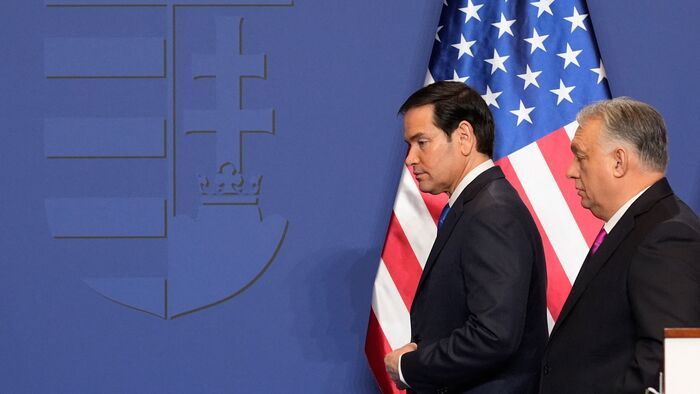

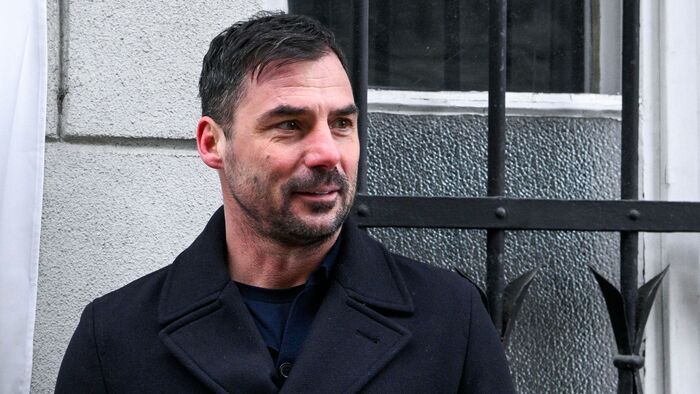
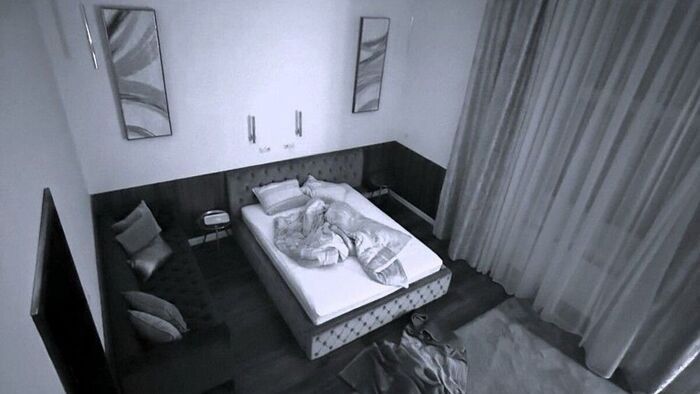
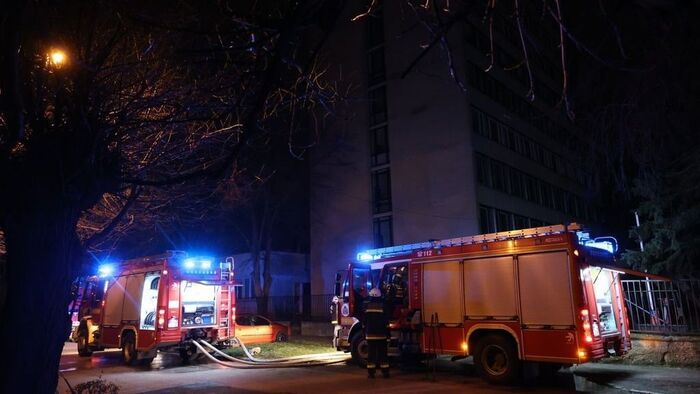







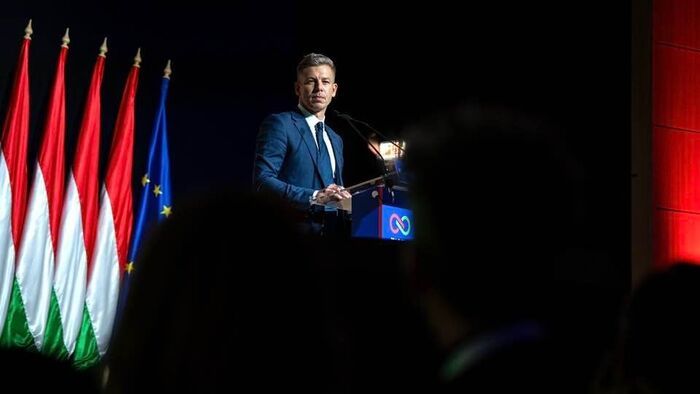

Szóljon hozzá!
Jelenleg csak a hozzászólások egy kis részét látja. Hozzászóláshoz és a további kommentek megtekintéséhez lépjen be, vagy regisztráljon!